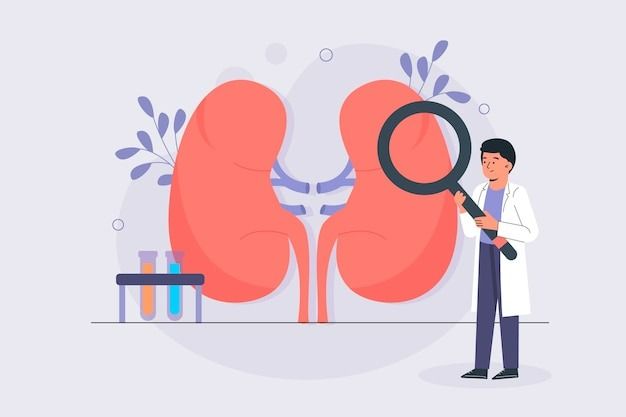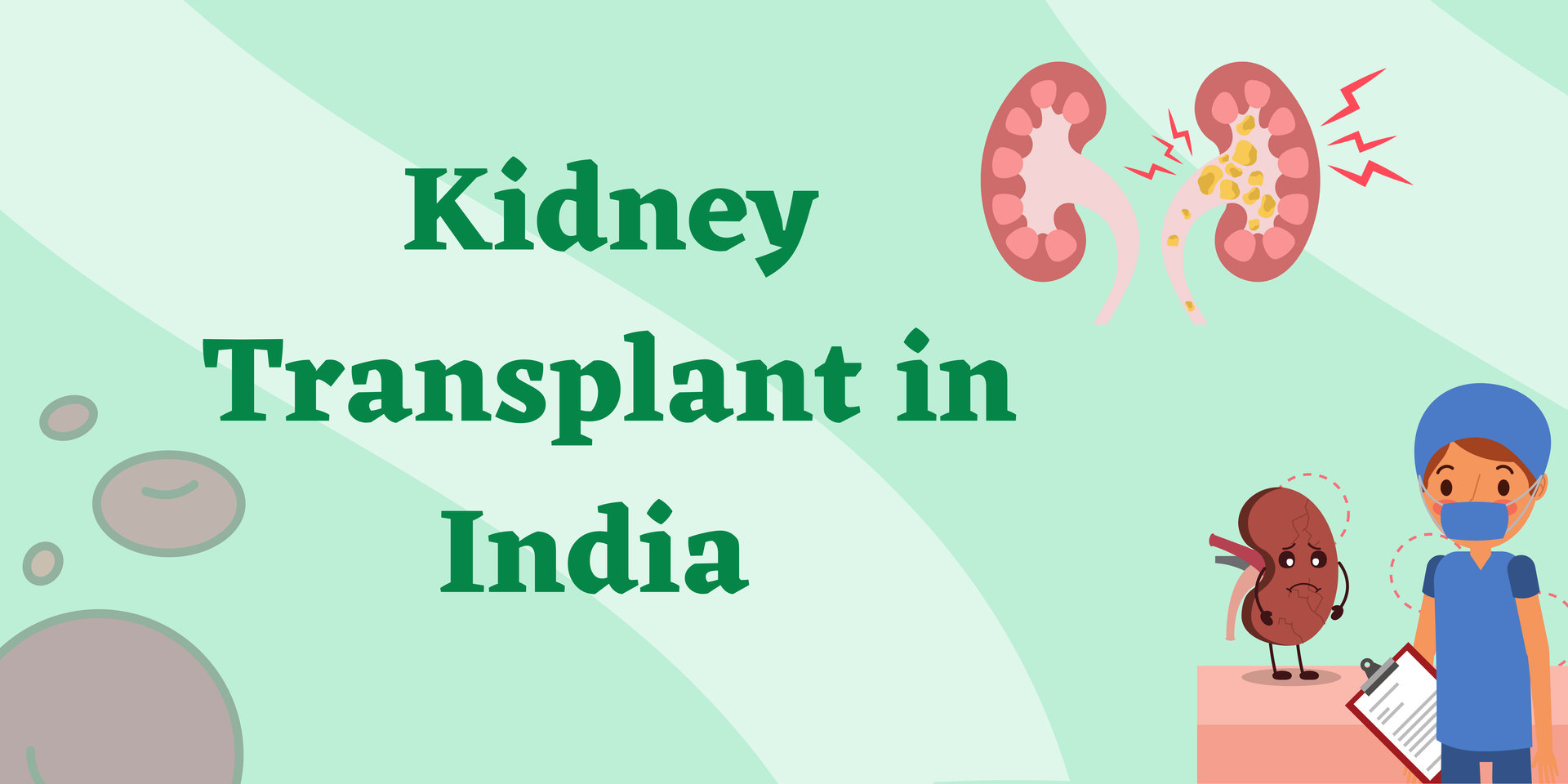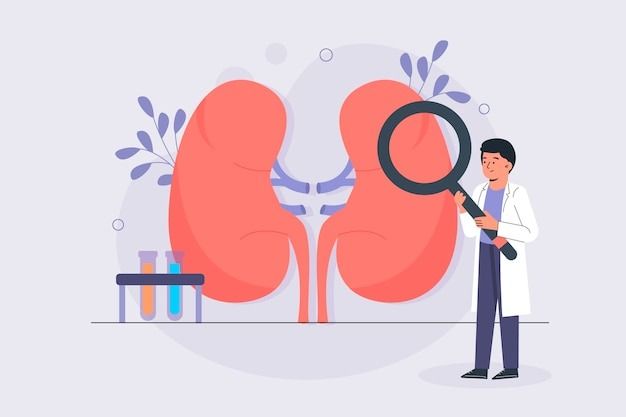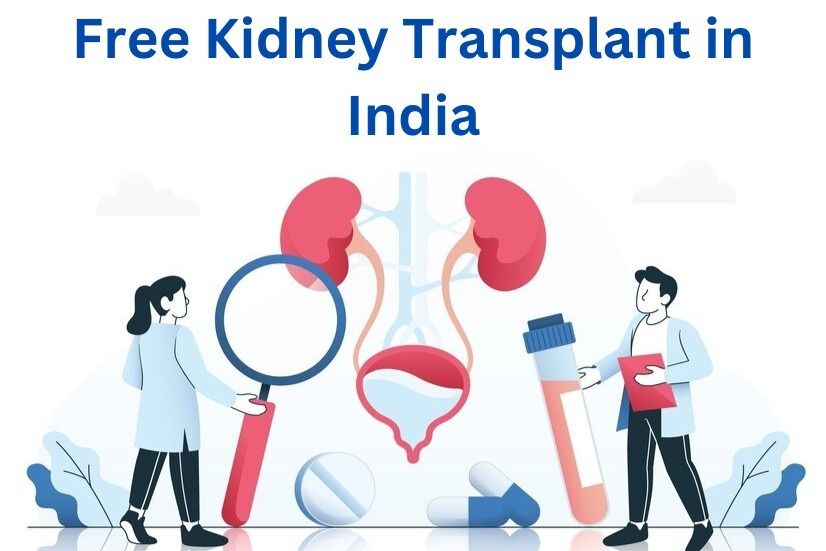How common is it to require dialysis after a kidney transplant?
It's not very common to need dialysis after a kidney transplant. However, it may be needed in some rare cases. The main goal of a kidney transplant is for the new kidney to work properly so that you no longer need dialysis. Most people who get a kidney transplant don't have to do dialysis afterward. But it depends on different things like:
- Your overall health
- Functioning of the new kidney

The doctors will keep an eye on you and check how your new kidney is doing. They'll make sure you get the right care based on what you need.
Your health is too important to ignore – schedule your appointment now.
Before having dialysis you should know, why is it required! Read below to understand.
Why would someone need dialysis after a kidney transplant?
Sometimes, even after a kidney transplant, the new kidney doesn't work right away.
That's when dialysis might be needed.

There are a few reasons why someone might need dialysis after a kidney transplant:
- The new kidney needs time. It can take a while for the new kidney to start doing its job. During this time, dialysis helps keep the blood clean.
- Problems with the new kidney. Sometimes, the body doesn't accept the new kidney right away. There might be other issues that need to be fixed. Dialysis can help while the doctors work on fixing these problems.
- Everyone recovers from surgery at their own pace. If the body needs more time to heal, dialysis can help in the meantime.
Kidney transplant greatly affects the body. Kidney transplants may sometimes fail. Read on to understand the possible reasons.
What are the possible reasons for kidney transplant failure?

Sometimes, a kidney transplant may not work or may stop working altogether. Here are some possible reasons for kidney transplant failure:
- Rejection: The body's defense system may think the new kidney is an intruder and attack it. This causes the failure of new kidney transplants.
- Infections: After a transplant, infections can affect the new kidney. These infections can be caused by different germs like bacteria, viruses, or fungi.
- Surgery problems: like any surgery, there can be issues during or after the kidney transplant surgery. These problems could affect how well the new kidney functions.
- Existing health issues: like diabetes or high blood pressure can cause problems. This makes it harder for the new kidney to do its job. Sometimes, the same disease that damaged the original kidneys can come back. This harms the new kidney as well.
- Blood clots: can form in the blood vessels leading to the transplanted kidney. This causes a lack of blood flow. It may result in kidney transplant failure.
- Even after careful selection of the donor's kidney, some unexpected issues can affect the functioning.
Yes, dialysis does impact the success and effectiveness of a kidney transplant! Continue reading to find out!
How does dialysis impact the overall success of a kidney transplant?

Dialysis can affect how well a kidney transplant goes in these simple ways:
- Before the transplant. Some people need dialysis to stay healthy while waiting for a new kidney.
- After the transplant. The new kidney might take time to work. Dialysis can clean the blood until it gets better.
- If there are issues with the new kidney, dialysis can help until the problems are fixed.
- If the new kidney doesn't work or is rejected, dialysis can clean the blood while doctors figure out what to do next.
Take charge of your health and your life. Contact us today!
The success of a kidney transplant depends on many things. Dialysis is used at different times to help. The doctors will make sure you get the best care for your transplant.
Curious about the duration of dialysis after a kidney transplant? Let's delve into it.
How long do patients typically need dialysis after a kidney transplant?

Dialysis after a kidney transplant may be needed for a little while. This happens until the new kidney starts working properly. This time can be a few days, weeks, or even months. It depends on the person's health, new kidney functioning, and recovery.
The doctors keep a close watch on the new kidney and do tests to check how it's working. If the new kidney is doing well and the person is healthy, they won't need dialysis for much longer. The doctors decide how long someone needs dialysis based on their specific situation.
Of course dialysis has benefits, but risks are also associated. Read below to find out.
What are the risks of undergoing dialysis after a kidney transplant?

Dialysis after a kidney transplant has some risks. Let me explain them in simpler terms:
- Infection: There's a small chance of getting an infection when they do the dialysis.
- Clotting or bleeding: The tubes they use for dialysis can sometimes cause blood clots or bleeding.
- Dialysis helps get rid of extra fluids and waste. But it can also mess up the balance of important fluids in your body. This can cause issues with how much water you have and the levels of salt and potassium.
- Putting stress on the new kidney: Dialysis can make the new kidney work harder. This extra stress can affect how well it functions.
Remember, these risks are not very common. The benefits of dialysis after a kidney transplant are usually more important. The doctors and nurses will take good care of you during dialysis and watch for any problems.
Are you wondering if dialysis can be used to treat kidney transplant rejection? Let's find out.
Can dialysis be used to treat kidney transplant rejection?

No, dialysis cannot treat kidney transplant rejection. Dialysis is a procedure that helps clean the blood when the kidneys are not working properly. It doesn't fix the problem of rejection.
Kidney transplant rejection happens when the body's defense system attacks the new kidney. To treat rejection, doctors give special medicines that help stop the attack.
So, dialysis and the medicines used to treat rejection are different. Dialysis helps clean the blood. While the medicines can help protect the new kidney from rejection.
Your well-being is our priority - call us to book your appointment today
How is the need for dialysis after a kidney transplant determined?

Doctors decide if someone needs dialysis after a kidney transplant by checking how well the new kidney is working. They do this by:
- Blood tests look at the levels of waste products: High levels suggest the new kidney may not be working. In such a case dialysis might be needed.
- Checking the urine: They see how much urine the new kidney is making. If there's too little or none at all, it means the kidney is not working well. This indicates dialysis may be necessary.
- Looking for signs: They watch out for swelling, high blood pressure, or changes in weight. These issues could mean problems with the kidney. Hence indicating the need for dialysis.
Based on these things, the doctors decide if dialysis is needed. They also consider the person's medical history, other health issues, and how well they're recovering.
What lifestyle changes should be made if someone needs dialysis after a kidney transplant?

If you need dialysis after a kidney transplant, there are some simple changes you can make in your daily life to stay healthy:
- Go to dialysis sessions as scheduled- Make sure you go to all your dialysis appointments as instructed by your doctors. This helps remove waste from your body and keeps you feeling well.
- Take your medications-The doctors will give you medicines to help with dialysis to support your new kidney. Take them as prescribed to keep your kidney working its best.
- Eat healthy food- Eating a balanced diet is important. Ask your doctors or a dietitian about what foods are good for you and any special diet you may need.
- Drink enough fluids- It's important to stay hydrated. Your doctors will let you know how much fluid is right for you. They will give you guidance on how much to drink.
- Manage other health conditions- If you have other health issues like diabetes or high blood pressure, it's important to take care of them. Follow your treatment plan, take your medicines, and make any necessary lifestyle changes.
- Stay active- Your doctors will tell you if it's okay for you to exercise. Doing physical activities can help you stay healthy, but make sure to ask them what's safe for you.
What other factors can impact the need for dialysis after a kidney transplant?

Certain things can affect whether someone needs dialysis after a kidney transplant. Here are simpler explanations:
- If the healing time is longer and the kidney is taking time to work properly. Dialysis might be needed until it gets better.
- Kidney function: Suppose the new kidney is not working well right away. Dialysis after a kidney transplant is required until kidney functioning improves.
- Rejection risk: Some people have a higher chance of the body rejecting the new kidney. If that happens, it can affect how well the kidney works and increase the need for dialysis.
- Existing health conditions: If someone has other health problems like diabetes or high blood pressure, or kidney stones. It can affect the new kidney's function and increase the chance of needing dialysis.
- Surgery complications: Sometimes, problems can happen during or after the kidney transplant surgery. These issues can affect how well the new kidney works and might lead to dialysis being needed.
Can someone return to dialysis after having a successful kidney transplant?

Sometimes, even after a successful kidney transplant, a person may have to go back to dialysis. Here's a simpler explanation:
After a successful kidney transplant, most people no longer need dialysis. Yet, in some cases, problems can occur. That affects the new kidney. These problems might include the new kidney not working or the original kidney disease coming back.
If these problems happen, a person might need to return to dialysis temporarily or permanently. It's not very common, but it can happen. The doctors will track the situation and decide the best way to manage it, which might involve going back to dialysis if necessary.
According to Health Reporter-
The frequency and duration of dialysis sessions typically differ
significantly after a kidney transplant compared to pre-transplant.Before a kidney transplant, patients who require dialysis typically undergo
three in-center hemodialysis treatments per week, each lasting around 4
hours. Alternatively, they may opt for three shorter daily sessions of
peritoneal dialysis, with each session lasting approximately 30 minutes.After a successful kidney transplant, if the transplanted kidney begins
functioning properly, the need for dialysis is eliminated. In this case,
the recipient no longer requires regular dialysis sessions.However, in some cases, immediate post-transplant dialysis may be needed as a temporary measure until the transplanted kidney starts functioning
optimally. The duration of post-transplant dialysis varies for each
individual. It can last for a few days or weeks, depending on how quickly
the transplanted kidney recovers and begins to perform its function
effectively.
FAQs

Q1. How long after a kidney transplant can dialysis be stopped?
Ans. Dialysis can be stopped immediately after a successful kidney transplant in some cases, but it may take several days or even weeks for the new kidney to start working well enough to completely replace the need for dialysis.
Q2. Is dialysis necessary after kidney transplant surgery?
Ans. Dialysis may be necessary for a short period of time after kidney transplant surgery until the new kidney starts working well enough to filter waste products from the body effectively.
Q3. How long does a person need dialysis after a failed kidney transplant?
Ans. The duration of dialysis after a failed kidney transplant varies depending on the individual's circumstances, but it may be necessary until a new kidney becomes available or alternative treatment options are pursued.
Q4. What are the risks of dialysis after kidney transplant surgery?
Ans. The risks of dialysis after kidney transplant surgery include infection, bleeding, damage to the blood vessels or the new kidney, and blood clots.
Q5. Can a person receive dialysis after a kidney transplant if the new kidney fails?
Ans. Yes, if the new kidney fails, a person may require dialysis until a new kidney becomes available or other treatment options are pursued.
Q6. How often does a person need dialysis after a kidney transplant?
Ans. The frequency of dialysis after a kidney transplant depends on the individual's kidney function and other medical conditions. It may be necessary every few days or once a week in some cases.
Q7. Can a person stop dialysis once the new kidney starts functioning?
Ans. Yes, if the new kidney starts functioning well enough to filter waste products from the body effectively, a person may be able to stop dialysis completely.
Q8. How does dialysis impact the success of a kidney transplant?
Ans. Dialysis after kidney transplant surgery can affect the success of the transplant by increasing the risk of infection, damaging the new kidney or blood vessels, and causing other medical complications. However, it may also be necessary for short-term support until the new kidney starts functioning well enough.
Reference-
https://pubmed.ncbi.nlm.nih.gov/27012124/
https://www.betterhealth.vic.gov.au/health/conditionsandtreatments/kidneys-dialysis-and-transplant
https://www.kidney-international.org/article/S0085-2538(15)48502-3/fulltext



